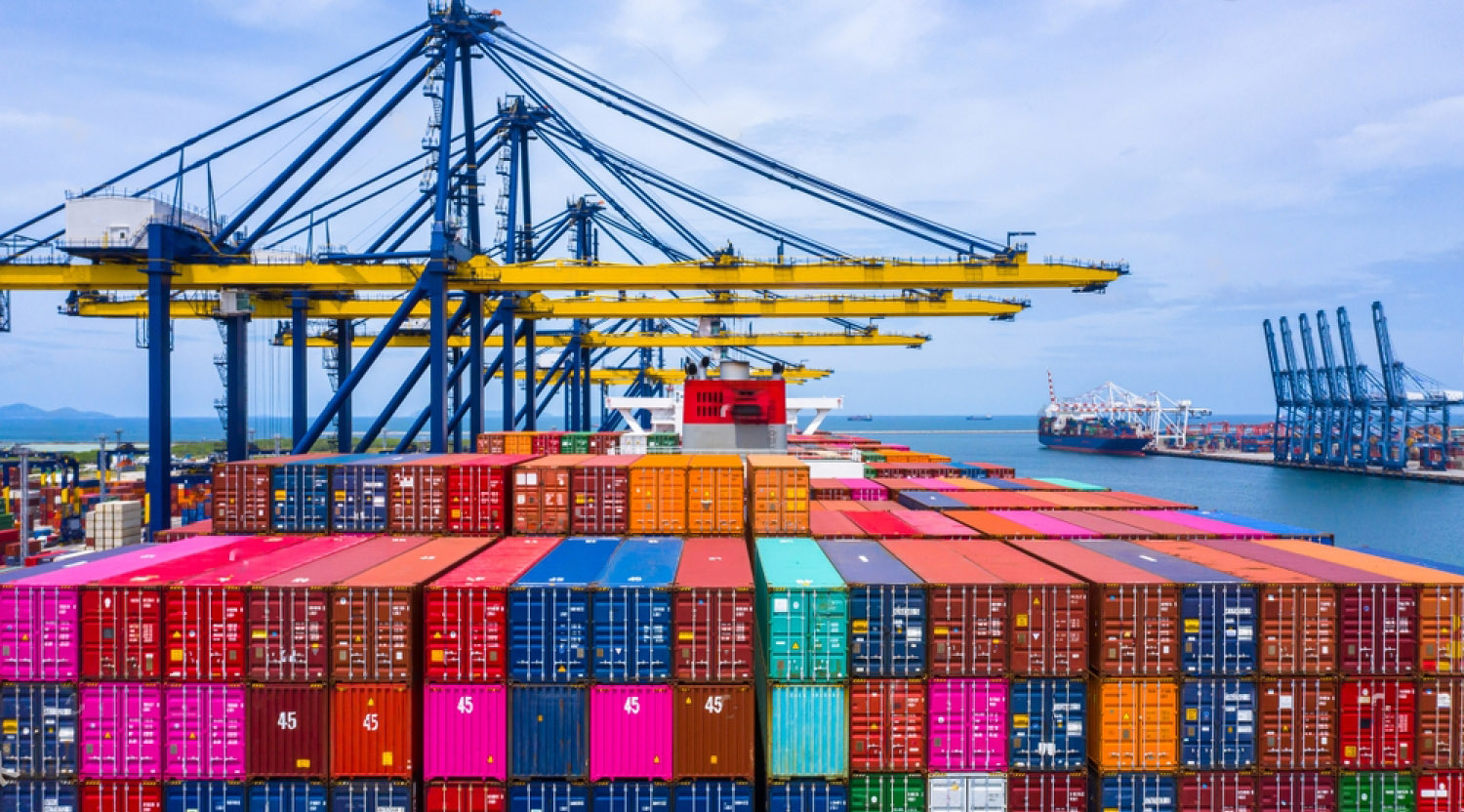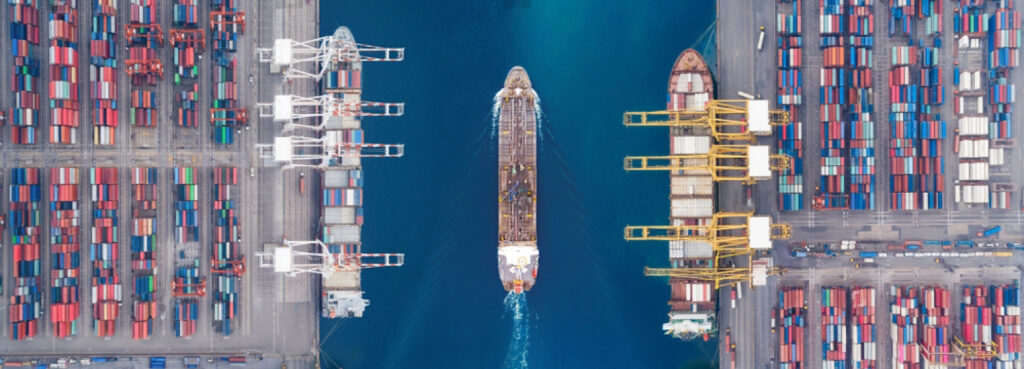
Major Ports Around the World
Container ports are the backbone of global trade and accelerate transportation among ports worldwide. Container shipping is a tool that increases trade volume between countries and facilitates the transportation of many goods. Therefore, container ports are one of the most important building blocks of the global economy. Here are detailed information about Major Ports Around the World.
Shanghai Port, China
Shanghai Port is the largest container port among the major container ports worldwide. In 2019, it handled approximately 43 million TEUs and managed 20% of global trade. The port is located in Shanghai, China's commercial capital. Shanghai Port is the busiest among the world's container ports, and its annual throughput is more than twice that of other ports worldwide.
Singapore Port, Singapore
Singapore Port is one of the most important container ports globally and handles 10% of world trade. The port is considered a major maritime hub in the Asia-Pacific region and processes approximately 37 million TEUs annually. Singapore Port is the second busiest container port worldwide.
Ningbo-Zhoushan Port, China
Ningbo-Zhoushan Port is located in eastern China and handled about 28 million TEUs in 2019. The port is recognized as an important maritime hub in the Asia-Pacific region and conducts over 5,000 container ship voyages annually.
Busan Port, South Korea
Busan Port is South Korea's largest container port, with an annual throughput of approximately 21 million TEUs. The port is considered a significant maritime hub in the Asia-Pacific region and conducts over 7,000 container ship voyages annually.
Dubai Port, United Arab Emirates
Dubai Port is the largest container port in the Middle East, handling about 15 million TEUs annually. The port is an important maritime hub in the Middle East.
Sea freight transportation services, you can visit our page for more information!
Qingdao Port, China
Qingdao Port is located in northeastern China and handled approximately 19 million TEUs in 2019. The port is an important maritime hub in the Asia-Pacific region and conducts over 2,000 container ship voyages annually.
Rotterdam Port, Netherlands
Rotterdam Port is the largest container port in Europe, with an annual throughput of about 14 million TEUs. The port is one of Europe's commercial centers and conducts over 30,000 ship voyages annually.
Tanjung Pelepas Port, Malaysia
Tanjung Pelepas Port is located in the state of Johor, Malaysia, and handles about 9 million TEUs annually. The port is recognized as an important maritime hub in the Asia-Pacific region and conducts over 4,000 container ship voyages annually.
Hong Kong Port, China
Hong Kong Port is located in southeastern China and handled about 18 million TEUs in 2019. The port is an important maritime hub in the Asia-Pacific region and conducts over 7,000 container ship voyages annually.
Port Klang, Malaysia
Port Klang is Malaysia’s largest container port, with an annual throughput of approximately 14 million TEUs. The port is an important maritime hub in the Asia-Pacific region and conducts over 10,000 container ship voyages annually.
Functions of Container Ports

In general, the functions of these ports are very important for each country and trade. The main reason for this is summarized in the functions listed below.
Storage and Management of Containers
Container transportation ports are facilities equipped with the infrastructure necessary for the storage, management, and processing of transported containers. These ports also include equipment needed for loading and unloading containers onto ships. Container cranes, forklifts, and other transportation vehicles are used for moving, storing, and processing containers.
Supporting Global Trade
Container shipping ports play a critical role in the sustainability of global trade. Ports facilitate trade between countries and support economic growth worldwide. These ports accelerate transportation among the world's container ports and contribute to increasing trade volume between nations.
Importance for a Sustainable World
Container shipping ports manage a large portion of the trade volume worldwide and therefore play a critical role in a sustainable global economy. Ports have special facilities for recycling and reusing containers. Additionally, designated areas are created for storing transported containers, designed to ensure their safe storage.
Container shipping ports are vital for supporting global economic growth and sustainability. The storage, management, and processing of containers accelerate transportation among major ports worldwide and contribute to increasing trade volume between countries. Furthermore, recycling and reuse processes, which are essential for a sustainable global economy, are carried out thanks to container shipping ports.
Container ports are facilities equipped with the infrastructure necessary for loading and unloading containers onto ships. These ports use specialized equipment such as container cranes, forklifts, pallet trucks, and other transportation tools for moving, storing, and processing containers.
Container ports are very important for global economic growth. By accelerating transportation among major ports worldwide, they increase trade volume between countries. Additionally, they facilitate the transportation of many products, helping to expand global trade even further.
Importance of Transportation Ports
Transportation ports also play a critical role in the sustainability of global trade. Ports create dedicated areas for storing transported containers, designed for their safe storage. Additionally, ports have special facilities for recycling and reusing containers.
Container shipping ports manage a large part of the trade volume worldwide. They are an important component supporting global economic growth. Most of the world's container ports are located in the Asia-Pacific region. This region handles approximately 70% of global container transportation volume.
Major container ports around the world are vital for maintaining the vitality of global trade. Container shipping accelerates transportation among major ports and facilitates trade between countries. Therefore, container ports support global economic growth and play a critical role in a sustainable global economy.
Developments in Container Shipping Ports
Technological developments; container shipping ports have undergone significant changes in recent years with technological advancements. These developments are used to increase efficiency, speed up operations, and create a more sustainable transportation system. Innovations include automated container handling systems, radio frequency identification (RFID) technology, and artificial intelligence.
The size of ports; Major ports around the world are growing every day. This growth enables ports to have greater capacity for storing and processing containers. Especially in the Asia-Pacific region, ports manage a large portion of global container transportation volume, and ports in this region are among the largest container ports worldwide.
Container transportation ports are evolving and continuing to grow with technological advancements. Innovations such as automated container handling systems, RFID technology, and artificial intelligence increase efficiency and speed up operations at ports. The size of ports also increases their capacity to store and process more containers. These developments continue to support global economic growth.
You Might Be Interested: Container Dimensions





